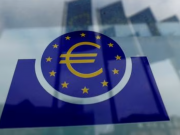A grim outlook for trade, especially with China, and a staggering fall in global oil prices that has significantly changed the inflation scenario have prompted some analysts to think the MAS will go for a tweak before its next scheduled meeting.
MAS had eased policy in October last year in the face of low inflation and lackluster economic growth. The next scheduled policy meeting is in April.
Those who think the MAs will go in for a downward tweaking of the monetary policy are supported by the precedence of the city state easing its exchange-rate based policy in an unscheduled statement in January 2015, citing a fall in global in oil prices that spilled on to the inflation outlook.
Credit Suisse economist Michael Wan told The Business Times the probability of a monetary easing has increased.
"I would say the probability of them easing has increased, and they can do it in two ways. They could widen the band, and blame it more on market volatility rather than an explicit change in economic conditions. Or they could shift the band lower, essentially to neutral - and blame it on weakness in China. I think both are possible," he told the newspaper.
Oil Prices and Inflation
Oil prices have fallen below the US$30 per barrel, which is far below the MAS' 2016 projection of a US$54 level.
However, the central bank has reiterated that it is not considering a policy easing now.
"Our core MAS policies should not change fundamentally. Our monetary policy decisions recognise that inflation is low today, but is likely to rise over the medium term amidst a tight labour market," deputy prime minister Tharman Shanmugaratnam, who is also the minister-in-charge of the MAS said on Tuesday.
Singapore's exports dropped more than expected in December data showed last week. The trade outlook for 2016 remained bleak in the face of a slump in China's growth. China, Singapore's biggest trading partner, recorded the worst annual GDP growth rate in 25 years last year.
The city state' non-oil exports fell 7.2 percent year-on-year in December, which followed a 3.4 percent fall in November.









